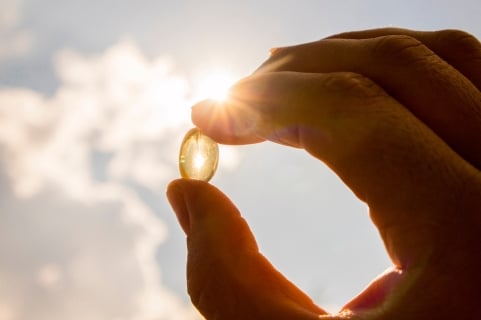
We’ve been maintaining a strong focus on our health and immunity this year, and for good reason. The practice of good hygiene and social and physical distancing combined with a strong immune system are the best protection against COVID-19. Researchers around the world are discovering more about this virus every day. Specifically, recent studies are discovering a relationship between vitamin D levels and the severity of symptoms in those infected with COVID-19.
The sunny vitamin
Vitamin D is needed to maintain strong bones by helping the body absorb calcium and to carry messages from the brain to every body part. It also plays a very important role in your immune system. We get vitamin D primarily from exposure to sunlight, but it’s also found in small amounts in some foods including seafood like salmon, tuna, and mackerel; cheese and egg yolks; and certain mushrooms and widely through supplements.
New connections discovered
A British study looked at vitamin D levels in 20 European countries and found that those countries with older populations where vitamin D levels are severely low (notably in Spain, Italy, and Switzerland) had more severe cases of COVID-19 infection and higher mortality rates.
Another study, from Louisiana State University, found that Louisiana African Americans represented a significantly higher proportion of COVID-19 deaths than the rest of the population. It’s worth noting that those with darker skin traditionally have lower vitamin D levels due to the sunlight-filtering effect of melanin in their skin.
In a study from Northwestern University in Boston, researchers analyzed data from around the world and found a strong correlation between vitamin D deficiency and what is called “cytokine storm,” a hyperinflammatory condition caused by an overactive immune system, and between vitamin D deficiency and mortality.
Much more research is underway, specifically to understand the correlation more directly and the “mechanism of mortality,” but these studies do signify how important having sufficient levels of vitamin D can be to our overall health during COVID-19.
So, what can you do? Consult with your health care practitioner to determine your vitamin D levels if you think you might be deficient. Supplements are easy to acquire from your local health food store. In the meantime, try to safely soak up some more sun, eat well, and stay healthy!


